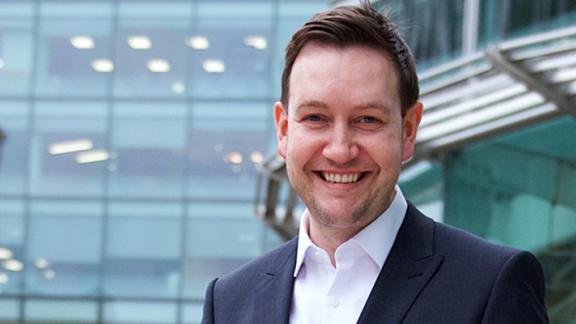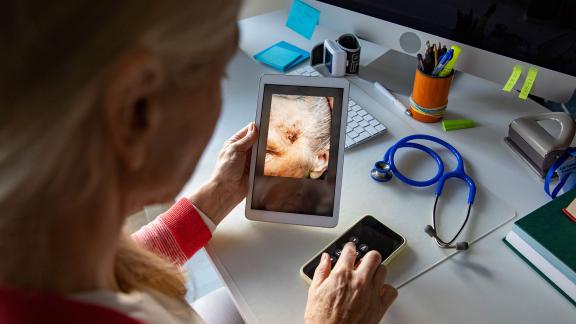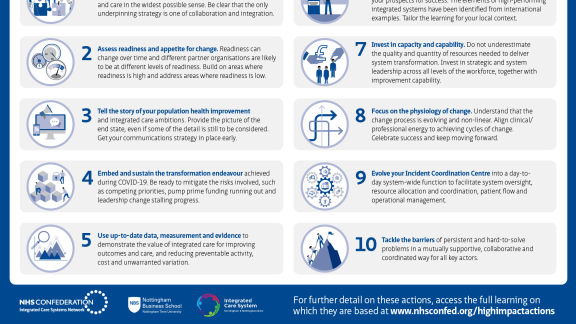NHS Reset: We have glimpsed a new way of doing things

NHS Reset is an NHS Confederation campaign to help shape what the health and care system should look like in the aftermath of the pandemic.
In this blog, part of a series of comment pieces from NHS Confederation members and partners, Jonathan Wells, director of Healthwatch Cambridgeshire and Peterborough, reflects on how health and social care services have responded to COVID-19 and how the new ways of working should be embraced and adopted for the benefit of current and future patients and staff.
In thinking about how the NHS will work in future, we need to understand how it has responded to COVID-19. One thing is certain. The NHS and social care locally started doing things three months ago that you would never have believed possible. Staff moved suddenly from community to inpatient services at our mental health NHS trust and between healthcare organisations. Good decisions were made fast and agencies cooperated easily, showing a real sense of urgency.
At the same time of course, some services closed, others reduced what they do and stopped ‘in-person’ meetings with service users unless considered essential. More staff were off sick or naturally concerned about their own health. Managers were preoccupied about reorganising to meet the challenge of this sudden crisis.
Adapting quickly
At Healthwatch, we faced similar challenges and had to adapt quickly. We arranged for staff to work effectively from home and paid close attention to their wellbeing. We made sure our messaging about the virus and related guidelines was always accurate and up to date, which wasn’t easy! In carer support we moved from in-person to online groups and promoted our phone line but were puzzled to find its use declining. We will need to look more closely at that.
While I am a director of Healthwatch Cambridgeshire and Peterborough, I also have roles coordinating carer support as part of Rethink and am chair of The SUN Network; a mental health voice organisation. Throughout the pandemic, my major role has been to work alongside NHS commissioners, the NHS trust, the local authorities and other partners to make sure the public voice is heard as the system moves towards restoration and recovery.
It has been surprisingly difficult to know what the provision of mental health services – for children and young people and all adults – has actually been like since March. Public feedback has been limited and mixed. One routine that was paused was NHS data reporting, so that when we came to ask what activity in mental health services looked like across the system, the answer was often: ‘We don’t know.’
It was agreed that services had been drastically reduced, which was regrettable. And yet, there have been no signs so far of any surge in demand for services. Sometimes services seem very hectic but other times strangely quiet – perhaps like many types of crisis. We need to understand how services changed and the impact on patients.
There are several positives I’ve seen that I hope we can hold on to:
Digital
NHS and voluntary services have made much more use of digital options with remarkable success. Video consultations are now widely adopted and agencies have moved fast to join up and provide better online advice and information. But there are downsides. Digital runs the risk of being over-attractive to commissioners who do not know enough about clinical effectiveness and are driven by financial pressures. Maslow said it better than me: ‘If you only have a hammer you tend to see everything as a nail.’ We need to understand which patients might find it more challenging to access digital services, and the impact on them.
Integration
There has been a strong sense of agencies working together when faced with a common enemy. What a huge sigh of relief there must have been when it was announced in March that the NHS would cover the costs of those needing social care packages to stay out or get out of hospital! The much talked-about trusted assessments between providers - enabling people to get the help they needed - have actually started to happen. In reality, integration may not be maintained because it will go into the ‘too difficult’ box. Even though I worked in a joint commissioning team and then a mental health partnership NHS trust over 15 years ago, I have seen little sustained progress.
Community and staff engagement
There is a feeling that voluntary organisations and volunteers have been truly valued, with better understanding of what they uniquely can do. Alongside that, there seems to be acceptance that public engagement will be critically important as health and social care evolves into a new normal. Like other Healthwatch, we have been closely involved in getting the public on board with the behaviour changes required, as well as providing intelligence to public health colleagues and others on public preferences and launching the Healthwatch survey.
True engagement of clinicians and communities may falter, although even before COVID-19 it was agreed locally that we had more chance of developing better services if commissioners worked through trusting relationships rather than rigid contracts only.
.
We are at a crossroads. All the pre-COVID-19 challenges reflected in the NHS Long Term Plan remain. We have glimpsed a new way of doing things. We owe it to present and future patients, families and staff to embrace the new way now, when we can see it works.
Jonathan Wells is a director of Healthwatch Cambridgeshire and Peterborough. Healthwatch is an independent organisation representing people who use health and social care services. You can follow Healthwatch Cambridgeshire and Peterborough on Twitter @HW_CambsPBoro



